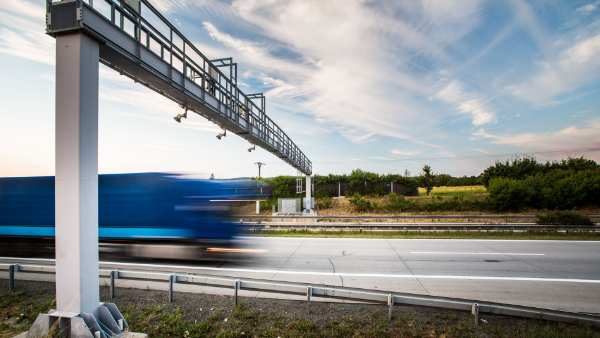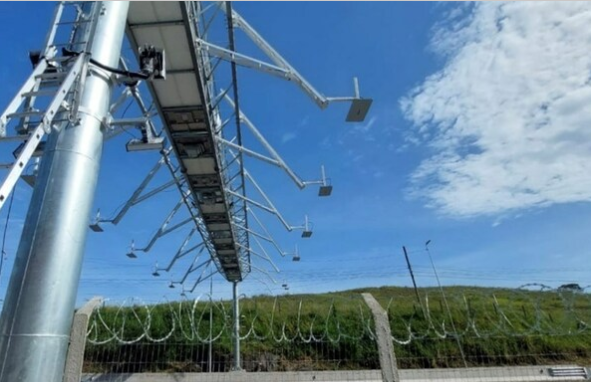Kapsch TrafficCom intensifies its efforts with cutting-edge technology to massify sustainable mobility on a global scale, with its first Free Flow toll system in Brazil.
The implementation was carried out on the BR-101 highway, on a 170-kilometer stretch from Rio-Santos, using state-of-the-art equipment from the Austrian company.
As the Free Flow system is quick to implement, the project was executed in only four months and first underwent a test period to analyze traffic flows and the performance of the technology.
Platform Attributes
As soon as it was installed, the system began to identify and classify vehicles traveling on the highway. In a press release, Kapsch detailed that toll collection began at the end of March and, as the highway concessionaire informed the media, there were no accidents related to the activity during this period.
The success of the project can also be seen in the increase in the use of tags for toll payment, which, according to figures cited by the concessionaire, has increased by 46% between the pre-operation period and today.
Read also: Discover the OmniAir-certified Kapsch Janus Reader
Unlike traditional toll booths, the free-flow system eliminates the need for toll plazas and barriers and, with it, the endless queues that form especially on public holidays and at peak times.
According to Kapsch, the platform helps to reduce traffic jams due to narrow lanes and stops, vehicle fuel consumption and, consequently, CO2 emissions.

Innovation and evolution
Samuel Kapsch, Kapsch’s Executive Vice President for Latin America, noted that the technology has the potential to transform the road user experience.
“Free Flow tolling is an example, as well as new connected mobility technologies that are trending for highways in the future,” said the executive.
The process of bringing Free Flow tolling technology to Brazil, for the first time within a legal framework, began long before this first project and involved a great deal of technological know-how transfer work between Austria (Kapsch’s home country), Chile and Brazil.
Related content: Kapsch: A Smart Tolling and Sustainable Mobility Solution
Kapsch played a crucial role as developer and supplier of the technology, coordinating visits by representatives of Brazilian concessionaires and regulatory agencies to its Free Flow toll facilities and implementations in Chile, the United States and Austria.
In this regard, Kapsch’s Vice President of Solutions and expert in this technology in Latin America, Carlos Wiedmaier, explained that bringing Free Flow technology to Brazil was a very rewarding process of knowledge transfer between professionals from different countries.
Project Details
The project for BR-101 consisted of the installation of 3 gantries, located in the coastal towns of Itaguaí, Mangaratiba and Paraty.
The gantries were equipped with state-of-the-art equipment, including antennas and RFID readers with Artefato protocol, VDX sensors, side-view VRX cameras and infrared illuminators.
According to Kapsch’s press release, this is high-precision equipment, most of it manufactured by the company itself, which aims to ensure system performance, detection accuracy and proper identification, vehicle classification and axle counting.
It should be noted that Kapsch also developed the operational back office for automatic and manual validation, image processing through two engines with OCR (Optical Character Recognition) technology, and the fusion of fingerprint with patents.




